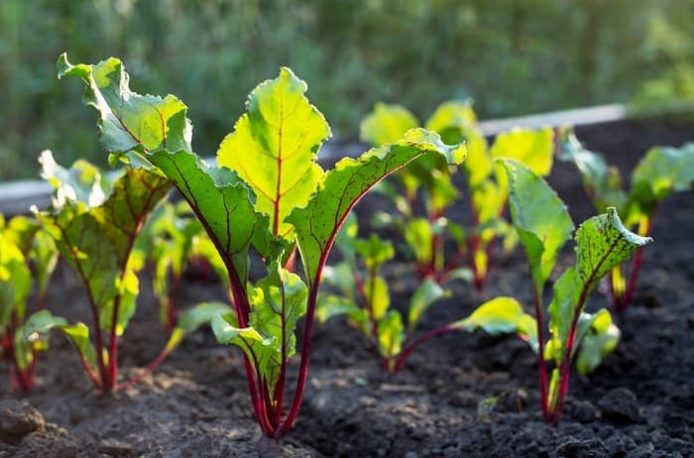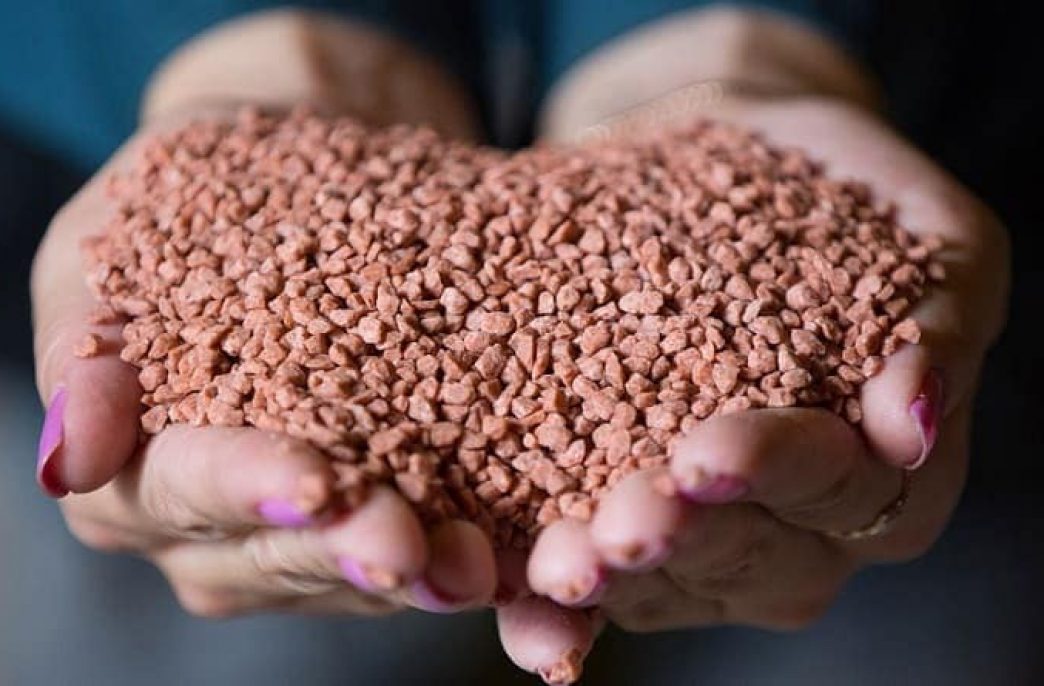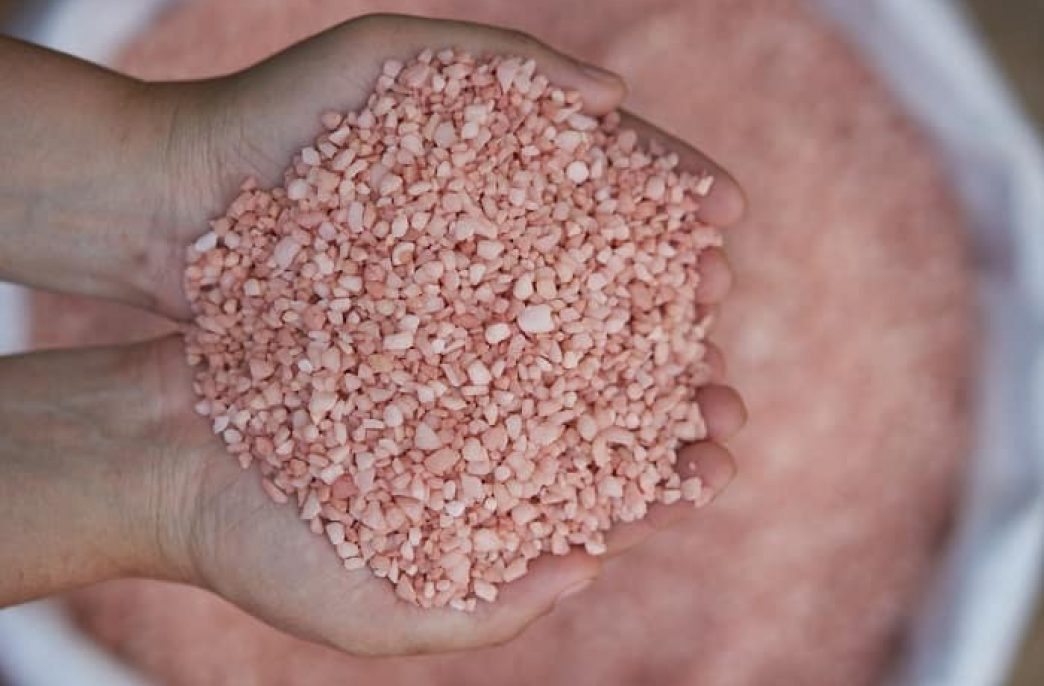Basic nutritional requirements of beets

Beets are a demanding vegetable in terms of growing conditions. When the root crop grows, the soil becomes severely depleted. Therefore, if you ignore the fertilization of the beets during planting and in the future, the harvest will be poor and of poor quality. Regardless of the variety, be it fodder, sugar or table crops, it needs intensive nutrition from outside. Nursing activities are carried out annually, top dressing is applied several times per season.
Beets grow well on loams and sandy loams, small-lumpy loamy chernozems, fertilized a couple of years before planting the vegetable with organic matter. Beets grow poorly on acidic and heavy soils. They need to be prepared in advance – deoxidized with lime in advance, so that it has time to dissolve in the soil.
On fertile soils, only mineral fertilizers are used for beets when planting in spring. About a week before sowing, you need to treat the area with a mixture of 20 g of ammonium nitrate, 15 g of potassium sulfate, 40 g of superphosphate.
If the land is infertile, it is preliminarily fertilized with fresh manure in the fall at the rate of 5 kg per 1 sq. m. In the spring, 4 kg of compost are applied per 1 sq. m. m, adding 50 g of nitroammofoska or other nitrogen fertilizers. Be sure to add 30 g of potash preparation or replace it with wood ash at the rate of 2 tbsp. for 1 sq. m.
For heavy soils, you will additionally need sawdust in the amount of 1-2 buckets per 1 sq. m. During sowing, the rows are fertilized with superphosphate at a dosage of 2 g per 1 running meter.
When and what microelements are best to add

The first fertilizer for beets when planting should contain a lot of nitrogen – about 10 g of urea per 1 sq. m. The second feeding is carried out without nitrogen-containing preparations, since the excess stimulates the growth of tops to the detriment of the development of root crops.
The second treatment is carried out with phosphorus-potassium compounds. 10 g of potassium chloride and 8 g of superphosphate are suitable. It is recommended to choose chlorine forms of preparations, since they contain less nitrates. Considering that beets are quickly saturated with nitrates, it is recommended to apply nitrogen fertilizers fractionally – divide the volume by 2 times. This will halve the amount of harmful substances in the root crop. If you use the chlorine form of potash fertilizer, the ions in them neutralize nitrates to a safe level.
It is recommended to select complex fertilizers so as to solve the problem of deficiency of various nutrients in one treatment. Experienced agronomists recommend applying part of the fertilizer for the beets when planting, and the second later.
How to fertilize correctly

In order for the result to meet expectations and even exceed them, you need to know about the nuances of choosing and using fertilizers for beets when planting. In principle, organic matter is not used, since it impairs the quality and aroma of the root crop, especially when it comes to manure and droppings. An exception is made only for very poor soils, on which nothing will grow otherwise. In this case, the soil is fertilized in the fall so that it becomes fertile by the spring.
Agrochemistry preparations are quite enough for growing a vegetable on fertile soil. Compost can be applied 10 days before planting by mixing with nitrogen preparations. Organic rate – 5 kg per 1 sq. m. The second dressing is applied in the same way – under beets, but not on the tops. If you want to get sugar beets, sprinkling is carried out – this is what watering with salt is called. The liquid is introduced into the prepared grooves located at a distance of 10 cm from the rows.
Popular types of fertilizers for all types of beets

When choosing which fertilizers to apply in spring when planting beets, one should take into account the type of soil and climatic features. The range of suitable formulations includes:
organic matter (droppings and manure, straw, compost, green manure);
agrochemistry (phosphorus, nitrogen, potash fertilizers and microelement additives);
local compounds (lime, ash, bone meal);
non-traditional options (defecates, phosphogypsum, phosphate slags, shale ash).
Depending on the type of soil, it should contain:
phosphorus (up to 45 g per 1 sq. m);
nitrogen (40 and 30 g per 1 sq. m for sod-podzolic soils and low-lying peatlands, respectively);
potassium chloride (25 and 40 g per 1 sq. m for the above soil types, respectively).
The main NPK complex is laid one week before sowing.
One of the most popular and effective fertilizers for beets when planting is Bordeaux. The composition is balanced according to the basic needs of the culture. Contains a lot of sodium, allows for a positive response to boron and chlorine. The preparation contains 11% nitrogen and phosphorus, 12% potassium, additives in the form of sodium, sulfur, magnesium and other elements. This is a classic composition that guarantees good growth not only for beets, but also for radishes, carrots, cucumbers and tomatoes, potatoes and onions. Also used for growing melons, grapes, hops and alfalfa.
In addition to providing plants with useful substances, the Bordeaux mixture heals from fruit rot, ponolial burn, polystygmosis, mottling, cocomycosis and viral diseases. After the first application of fertilizer for the beets at planting, it should take 1–2 weeks before the next treatment. The drug can be used in different ways – in the spring for digging, during preparation for seedlings, as a bait.
The benefits of fertilizing beets when planting Bordeaux include the following:
improves the quality of the vegetable;
shortens the aging period;
increases the yield by 50%;
all nutritional needs of root crops are taken into account;
recommended by industry experts.
To keep the harvest healthy and abundant, you need to avoid common mistakes. The main one is excessive fertilization. There are recommended dosages on the packaging of each drug. Less can be used, more cannot. This is the golden rule of farmers, regardless of what fertilizers are to be used – ready-made formulations, organic matter or prepared by hand. It is not difficult to grow beets, given the peculiarities of the culture, the timing and dosage of fertilizing.




